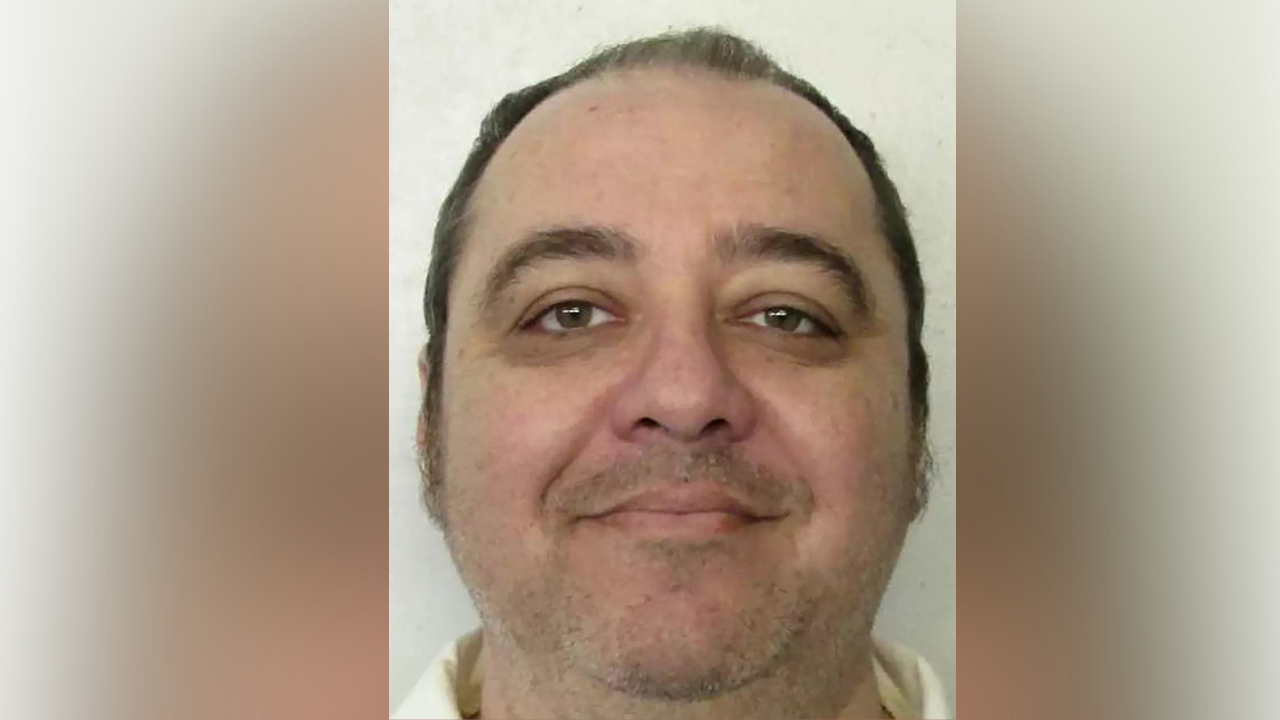[ad_1]
NEW DELHI: The first-ever case of execution using nitrogen gas in the United States has grabbed global attention and has garnered serious concerns and fierce condemnations. The latest reaction came from the White House on Friday which said it was “deeply troubled” by the execution.
“The use of nitrogen gas — it is troubling to us,” White House spokeswoman Karine Jean-Pierre told reporters.”We are deeply troubled by it.”
The southern state of Alabama put Kenneth Smith, a 58-year-old convicted murderer, to death on Thursday by pumping nitrogen gas into a facemask, causing him to suffocate.
Recent executions in the United States have been carried out by lethal injection but Alabama and two other states, Oklahoma and Mississippi, have authorised nitrogen gas use.
Defending his decision to put Smith to death through nitrogen asphyxiation, Alabama Attorney General Steve Marshall on Friday said the execution had been carried out in a “professional manner.”
“We will definitely have more nitrogen hypoxia executions in Alabama, I believe that number is 43,” Marshall told the news agency AFP.
After the nitrogen gas was administered, Smith “began writhing and thrashing for approximately two to four minutes, followed by around five minutes of heavy breathing,” local news outlet AL.com reported.
Alabama Department of Corrections Commissioner John Hamm said Smith appeared to be “holding his breath as long as he could” and there was “involuntary movement” and gasping.
UN human rights chief Volker Turk, along with the EU and civil liberties groups in the US, have voiced apprehension regarding the manner of Smith’s execution. This event has sparked renewed debate about the requirement of capital punishment.
“This novel and untested method of suffocation by nitrogen gas may amount to torture, or cruel, inhuman or degrading treatment,” Turk said.
Ravina Shamdasani, spokeswoman for the UN human rights office in Geneva, said Smith was “clearly suffering.”
Rather than using such untried methods to conduct executions, “let’s just bring an end to the death penalty,” Shamdasani said. “This is an anachronism that doesn’t belong in the 21st century.”
A spokesperson for the 27-member EU, which opposes the death penalty, denounced the method of execution as “a particularly cruel and unusual punishment.”
Smith received a death sentence for the 1988 murder-for-hire of Elizabeth Sennett, a pastor’s wife. He, along with an accomplice named John Parker, was paid $1,000 each to carry out the killing. Parker was executed by lethal injection in 2010.
In November 2022, Smith experienced a failed execution attempt when prison officials struggled to establish intravenous lines for administering a lethal injection. Smith was executed after the US Supreme Court rejected his last-minute appeals seeking a stay on execution.
“The use of nitrogen gas — it is troubling to us,” White House spokeswoman Karine Jean-Pierre told reporters.”We are deeply troubled by it.”
The southern state of Alabama put Kenneth Smith, a 58-year-old convicted murderer, to death on Thursday by pumping nitrogen gas into a facemask, causing him to suffocate.
Recent executions in the United States have been carried out by lethal injection but Alabama and two other states, Oklahoma and Mississippi, have authorised nitrogen gas use.
Defending his decision to put Smith to death through nitrogen asphyxiation, Alabama Attorney General Steve Marshall on Friday said the execution had been carried out in a “professional manner.”
“We will definitely have more nitrogen hypoxia executions in Alabama, I believe that number is 43,” Marshall told the news agency AFP.
After the nitrogen gas was administered, Smith “began writhing and thrashing for approximately two to four minutes, followed by around five minutes of heavy breathing,” local news outlet AL.com reported.
Alabama Department of Corrections Commissioner John Hamm said Smith appeared to be “holding his breath as long as he could” and there was “involuntary movement” and gasping.
UN human rights chief Volker Turk, along with the EU and civil liberties groups in the US, have voiced apprehension regarding the manner of Smith’s execution. This event has sparked renewed debate about the requirement of capital punishment.
“This novel and untested method of suffocation by nitrogen gas may amount to torture, or cruel, inhuman or degrading treatment,” Turk said.
Ravina Shamdasani, spokeswoman for the UN human rights office in Geneva, said Smith was “clearly suffering.”
Rather than using such untried methods to conduct executions, “let’s just bring an end to the death penalty,” Shamdasani said. “This is an anachronism that doesn’t belong in the 21st century.”
A spokesperson for the 27-member EU, which opposes the death penalty, denounced the method of execution as “a particularly cruel and unusual punishment.”
Smith received a death sentence for the 1988 murder-for-hire of Elizabeth Sennett, a pastor’s wife. He, along with an accomplice named John Parker, was paid $1,000 each to carry out the killing. Parker was executed by lethal injection in 2010.
In November 2022, Smith experienced a failed execution attempt when prison officials struggled to establish intravenous lines for administering a lethal injection. Smith was executed after the US Supreme Court rejected his last-minute appeals seeking a stay on execution.
(With AFP input)
[ad_2]
Source link


